|
Welcome Rosemary! Thanks for taking some time to chat about writing. First, a few quick-fire questions: What is your favorite kind of beverage to drink while writing/researching? Where is the best place to grab a coffee or tea or beer in Cork? And if you were put in charge of casting for an upcoming Beowulf movie then which actor would you recruit to play Beowulf? Thank you for the opportunity! I’ve been making iced coffees at home lately since the weather has finally picked up, so right now it’s those! Cork is blessed with so many lovely cafés. I tend to go to Vanilla and Co. on Cook Street, or Dukes Coffee Company on Carey’s Lane. For a Beowulf movie I would probably have to choose Henry Cavill. He’s fantastic in The Witcher so I’m sure he could do the poem more justice than what’s been offered so far. "For a Beowulf movie I would probably have to choose Henry Cavill. He’s fantastic in The Witcher so I’m sure he could do the poem more justice than what’s been offered so far." I’ve enjoyed hearing about your work on Beowulf through Twitter as well as on your blog, Fafnir’s Treasure Trove. I’ve found many academics are perhaps hesitant to engage the public on social media or through more personal platforms like blogs. What prompted you to start the blog and engage a wider audience? My blog actually began as part of my continuous assessment during my MA, so Dr Maureen O’Connor in UCC School of English and Digital Humanities has to get credit for it! I fell down a rabbit hole using it because it’s a space for testing out potential topics before diving into a conference paper. I think there’s this fear of your great idea being “stolen”, which I can understand but it can certainly happen in more traditional spaces as well, if someone stumbles across a note you publish, an article that they turn into a chapter or book, a conference paper they listen to, etc. You always run that risk. Social media has become more necessary for networking, especially since it isn’t safe to hold physical events right now. I think it is definitely going to continue to hold a place in academia whether we like it or not! Congratulations on completing your MA! Such a pursuit is a huge undertaking which I feel often goes unrecognized, especially by those who have not run the gauntlet of a graduate program. What advice would you have for writers who are considering taking a history-related MA? What are some potential upsides or downsides, especially as it relates to authors? Thank you! I think writers considering it need to take into account how much time is actually consumed by an MA. I only had around six hours of class time a week, sure, but the amount of preparation you need to put in before those classes is insane. Worth it but definitely mad. I find it difficult to only put in a half-hearted effort into anything I do so the MA quickly became my entire existence. I did a lot of extracurriculars during my bachelors and I had to pick and choose what I could keep doing and what I had to give up, because it was going to be impossible or quite unhealthy to continue trying to balance. "I only had around six hours of class time a week, sure, but the amount of preparation you need to put in before those classes is insane. Worth it but definitely mad." So be prepared to not have as much time to dedicate to other aspects of your life. Also be prepared for at least some people to not quite understand why you chose this discipline. I have no regrets whatsoever and the medieval continues to be the main feature for my life right now. But I definitely got a few interesting comments from others who just didn’t understand how it is relevant. I’m sure it sounds like a foreign language to my friends who have to listen to me babble on! One of your great passions/obsessions is the epic poem Beowulf! I was first ensnared by this spectacular piece of literature through Seamus Heaney’s translation. So I’d love to ask this: Why study Beowulf in 2021? What meaning or purpose does it have to our society hundreds of years later? Obsession is a good word to use! When I was in first year we actually used Heaney’s translation as well. As a proud Irish woman, it’s a great way to lure us in to the magic that is Old English literature. What we’re seeing right now is this wide reassessment of our relationship to gender and what our identity as a collective group of people or as individuals actually is. Part of the counter argument given to us is that “well back in the old days men were this, that, and the other, not this sort of tripe you’re banging on about!” "When I was in first year we actually used Heaney’s translation as well. As a proud Irish woman, it’s a great way to lure us in to the magic that is Old English literature." Take masculinity for example. You have many who argue that Beowulf is a perfect example of the traditional masculinity they feel is threatened by the social progress we’ve made in recent years. But looking at the poem, the image we’re given is actually so much more complicated but scholarship is only slowly starting to acknowledge that now. We’re also seeing a huge resurgence of the medieval in pop culture the last decade or so. But that leads to people falling down a rabbit hole and if we aren’t providing more nuanced arguments showing that gender and the medieval world are more complicated, where are they going to end up? More dangerous, extremist platforms for example. So it is definitely quite relevant considering both pop culture and the political scene in many countries right now! We also have to remember that a lot of narrative tropes that are still used in literature, film, etc. as well as the English language itself were shaped in these periods. Neil Gaiman, author of such best-sellers as American Gods and The Ocean at the End of the Lane, famously said that reads Heaney’s translation of Beowulf whenever ‘his blood needs stirring’. What are a few of your favorite translations and what unique features draw you to each? My go to for work is R. D. Fulk’s because he translated the entire manuscript and provides the Old English texts as well, so you can really dive into the original language, which is something that I think is quite necessary for the sort of work I’m doing! The use of Tolkien’s is quite dedicated to the structure of the Old English language so I like that one for those reasons. I also quite like Maria Dahvana Headley’s, which was only published last year! She uses terms like “bro” quite often, which is a great way of showing the comitatus society under a new light, especially younger audiences that might be used to modern “lad” culture as we call it here! The poem is undeniably a very male-centered poem after all! I am of the opinion that every film adaptation of Beowulf, at least the half-dozen that I’ve seen, are worse than bad… terrible actually. Do you think there is a decent movie adaptation of Beowulf out there? And what do you think makes the magic Beowulf hard to capture in the medium of film? I’d have to agree with you! There is an animated version for children that came out in the 90s but the narrative is heavily simplified. Accurate but simple. Though I imagine a 25 year old academic that is truly obsessed with the poem may not have been their target audience. The poem is so difficult to capture on film compared to maybe a later poem like Chaucer’s Canterbury Tales due to the long speeches and dialogue. A lot of those side stories we get in the poem, like the mention of Heremod and Sigemund, or the past feuds the Danes and Geats were both involved in, give us a lot of substance for Beowulf’s character. They truly inform the reader about Beowulf himself. For example we have at the end of this story about how problematic Heremod was a king, and right at the end of that we have a link back to Beowulf himself, with the poet stating that “violence found a home in him”. So the poet inserts Beowulf into this story and that warns the reader of what is yet to come. But for a film that you watch, that complicates it too much. Audiences want at least some bit of action and not just two hours of speeches. So a clean timeline usually means removing those speeches but that then removes a lot of the substance that shapes main characters. "Audiences want at least some bit of action and not just two hours of speeches. So a clean timeline usually means removing those speeches but that then removes a lot of the substance that shapes main characters." So what do directors do to fix that? Change the narrative completely! So then it’s not even accurate! Filmmakers have to find a way around this. There’s violence in the poem of course but there is more to it. Those speeches are vital because Old English poetry was shaped by the oral traditions of their culture which were adopted into their writing! Removing that is removing a lot of what makes the poem so interesting. Can you give us a sneak peek of what you are working on right now? A few hints or an idea of what to expect in the next few months? I’ve definitely tweeted about this recently enough but I’m currently working on a paper for a conference this June. The conference is Death and the Afterlives of Medieval Mystics. I’m looking at the moral attitudes towards feminine bodies, pleasure, and sin in The Awntyrs off Arthure and the possibility that these attitudes were inherited from Old English hagiography. So I’m contrasting Gaynour’s Mother, the language used to describe her, etc. to some female saints from Ælfric’s Lives of Saints. I’m also studying Old Norse grammar as my supervisor wisely advised me that if I want to work more with Old Norse literature, it would be good to have the language. I covered Old English grammar last year during Ireland’s first lockdown! "I’m looking at the moral attitudes towards feminine bodies, pleasure, and sin in The Awntyrs off Arthure and the possibility that these attitudes were inherited from Old English hagiography." Last, but certainly not least, where can readers find more of your work and stay updated on your most recent publications? Other than my blog and my Twitter account, I usually end up posting papers on my Academia account as well. Twitter is probably the best place as I often tweet out my thoughts as they come into my head. You’re also guaranteed pictures of my cats. If you are in academic circles, be sure to follow Rosemary's Academia account!
7 Comments
You are someone who knows how to finish things as you recently completed your first book. What lessons have you learned on your creative journey that might help those who are constantly starting stories but never seeing them through to the end? Great question! First, the story must have legs. It must compel and fascinate me enough to obsess you for months, if not years. My debut novel, The Norse Queen, took six years to write. I was working full time and commuted to work on the backroads so I could work on the story in my head. When I pulled into the parking lot or my driveway, I would scribble everything I’d come up with on the drive. I know, a tape recorder would have been better, but it didn’t work for me. I adore the research, poring over books about the Vikings, trying to translate texts from Norwegian. I went to Norway twice, and dogged the steps of archeologists. So, obsession helps, but maturity is also important. I tried to become a novelist in my twenties, and actually forced myself to finish a literary novel that made me so miserable I gave up writing for years. I wanted to have adventures, not sit in front of a computer, so I chucked that miserable novel in the sock drawer and went to sea. Years later, I had calmed down a bit and was ready to dive down the rabbit hole. "So, obsession helps, but maturity is also important. I tried to become a novelist in my twenties, and actually forced myself to finish a literary novel that made me so miserable I gave up writing for years." You and I share two particular things in common: an interest in writing stories about Vikings and the area of the world we live in, specifically the Pacific Northwest! I often hear the Pacific Northwest, especially the coast, being compared to the iconic geographical features of Norway and Sweden. How has living in this part of the world influenced the world you write about in your historical fiction? I do feel like I’m in touch with Norway in the Pacific Northwest. It is very similar in many ways. I love the sea and always want to be close to it, and the fact that seagoing is still a way of life here helps a lot. Maria Headley has famously challenged the male-dominated narrative of the epic poem Beowulf, both through her award-winning book The Mere Wife and her new feminist translation of the original text. What was your process for discovering, uncovering, and filling in the gaps of Åsa’s story in your Norsewomen series? There was very little fiction from a Viking woman’s point of view, so I had to put my story on the bare bones of archeological discoveries. I read a ton of archeological books, especially Neil Price’s The Viking Way, as well as the sagas and the various annals from the time. I try to stay up-to-date on new discoveries that can have a major impact on my writing. About midway during my writing of The Norse Queen, BJ581 became big news. BJ581 is a grave in Birka, Sweden, that was uncovered by an archeologist in the mid-1800’s. The burial was a full weapons grave with two horses. The occupant was buried most likely sitting upright on a saddle. It was long considered a chieftain or war leader’s grave. In 2017 the only occupant was proven to be that of a woman! "I try to stay up-to-date on new discoveries that can have a major impact on my writing. About midway during my writing of The Norse Queen, BJ581 became big news." You have a really interesting background knowledge concerning the handling of raptors (falcons, eagles, etc). How important were raptors to Vikings and in what ways were they used? Were they symbolic or culturally significant in any particular ways? Viking falconry is an elusive subject. There’s not a lot of archaeological evidence—most of the harnesses, hoods, jesses, etc. were leather and didn’t survive burial or cremation graves. Bronze or copper items such as swivels and tiny bells have been found in burials, as well as some raptor bones. There are picture stones in Norway and Sweden that portray hawking scenes. The Carolingian Chronicles mention that the Danish King Godfried was murdered just as he was about to release his hawk. In Hrolf’s Saga Kraki, riders with hawks on their shoulders are mentioned. The goddess Freyja owned a falcon cloak that enabled the wearer to fly—possibly alluding to “shapeshifting” (in which the shaman’s spirit enters an animal).
"Some of the most magnificent raptors are found in Norway, and the Norse traded in falcons." Your third book is in the final stages of development and will soon be released. How did you find the process of completing your third book compared to the challenge of finishing your first one? And what have you learned along the way that might help a new writer who is stuck on their first book?
My writing method is a strange amalgamation of pantsing and plotting. I write a lot of scenes until I get stuck and then I drag out one of my writing craft books such as Story Engineering by Larry Brooks, or The Night Time Novelist by Joseph Bates, and just follow the steps until the writing begins to flow again. It works every time. I think I just run out of plot and need to go back and impose more structure. In the later stages of writing I flit all over the place, making the beginning, middle, and end work together, and at one point I was working on all 3 books at once. Like most writers, the majority of the writing I do is actually revision. Just get something down on paper so you have something to work with, then go back and work on it until it’s right. "Just get something down on paper so you have something to work with, then go back and work on it until it’s right." Will there be another book in the Norsewomen series or are you going to begin a different project following the release of the third book? Can you give us any hints or sneak peaks? I’m already working on the fourth book. Åsa ruled for 20 years and there is absolutely nothing written about those years. The tale doesn’t pick up again until her son takes over the kingdom, and she is never mentioned again. I have a lot to explore! Where can readers find your books and keep track of your latest articles and publications? My books are available on Amazon in paperback, ebook, and free on Kindle Unlimited. I also have a website, a Facebook page, and I’m active on Twitter. Find out more about Johanna's Norsewomen series on her website!
Eric Schumacher presents the harrowing flight of young Olaf Tryggvason from the vengeful sons of Erik Bloodaxe in spectacular close-up detail through the eyes of young Torgil. Caught up in the deceptive schemes of Erik Bloodaxe’s sons, the two boys follow Torgil’s father, Torolv Loosebeard, as they flee to safety along with Queen Astrid, Olaf’s mother, and her retinue. "Eric Schumacher presents the harrowing flight of young Olaf Tryggvason from the vengeful sons of
"In this, he has captured two equally vivid sides of Viking life, the valorous battles fought with Schumacher shines particularly bright while narrating battles at sea. These conflicts, fought in close quarters and on choppy waters on the far-famed Viking longships, were a defining feature of life in the East Sea in the time of Olaf Tryggvason. Through his retelling the reader feels as if they are aboard the ship in the thick of battle alongside Olaf and Torgil as they dodge deadly arrows and thrust their sharpened seaxes.
"Schumacher also infuses his deep knowledge of Viking history into the narrative with details such as Any complaints I had were small. Queen Astrid, though stoic, seemed to me to lack both the tenacity and cunning required of Viking queens of the age, particularly in the first section of the novel. Second, though the narrative follows an epic and heart-breaking arc, I felt at times the need for a bit more comic relief between the heavy subjects of the book such as the abuse of slaves and the death of parents. That being said, neither of these issues prevented me from thoroughly enjoying the book. I highly recommend Schumacher’s Forged by Iron for anyone who has an interest in Viking history, particularly if they enjoyed The Long Ships (Frans G. Bengtsson) or The Half-Drowned King (Linnea Hartsuyker). Forged by Iron can be found on Eric Schumacher’s website and will be available as of April 15th, 2020.
In the past few years you have published several books, been an active contributor in academic circles, and engaged a large audience through social media. Do you set a strict schedule to maintain this level of productivity or do you find other ways to sustain your work? I have a bullet journal. It is not very decorative, but it is great for making checklists, and I like checking things off (yeah, I’m an overachiever). I read a certain amount of stories each day with my breakfast, and most of my blogging and social media posts are scheduled for specific days. It also helps that I do a lot of the storytelling research purely for fun. Sometimes I just feel like looking up folktales about a topic, or from a place, and I enjoy going down the research rabbit hole. It’s one of the things I do for fun. "I have a bullet journal. It is not very decorative, but it is great for making checklists, and I like checking things off..." Your work on folktales from around the world spans both continents and centuries. Is this work driven primarily by personal passion or do you hope that your translations become contributions to the ever evolving conversation on globalization? It is mostly personal passion. I love learning about cultures through their stories. I started the “Following folktales around the world” reading challenge a few years ago, and I still have about 40 countries left to read folktale collections from! As for contributions: With my books I hope to bring Hungarian folktales to English-speaking audiences and storytellers, because they are not very well represented on the English language folktale market. On the flip side, I translate a lot of tales into Hungarian so that Hungarian audiences can have access to them as well. "With my books I hope to bring Hungarian folktales to English-speaking audiences and storytellers, One of your first books was Tales of Superhuman Powers: 55 Traditional Stories from Around the World. Today more than ever, North Americans are flocking to the theater to watch movies about superheroes and traditional story-telling media, such as comic books and graphic novels, are becoming popular again. Given your work in this field, what do you think draws people to stories about superheroes? Is it human nature? Is it a part of our mythos or culture? Is there perhaps something psychological at work?
"My personal favorite thing about these “superhero” tales is teamwork. Earlier this year you released a book titled Forum-Based Role Playing Games as Digital Storytelling in which you describe an emergent form of digital storytelling facilitated through online platforms. Through this experience you discovered “a subculture of unbound creativity” as people wrote novel length descriptions of fictional characters and experience that they lived through these digital worlds. As a professional story-teller yourself, what drew you to engage with and study these emerging communities?
And the stories that come out of it stay online, and you can go back and read them for fun, or out of nostalgia. There are sites where I have been active for 8-10 years, and the stories still keep surprising and entertaining me. I love creating them in cooperation with others, rather than just writing things alone. In your 2018 publication Dancing on Blades: Rare and Exquisite Folktales from the Carpathian Mountains, you translate the tales of Anna Pályuk, a Rusyn woman who married into a Hungarian family. I find myself challenged by the task of ‘crossing cultures’ as I work with Icelandic source material from a different culture and time. How did you preserve the essence of Anna Pályuk’s stories while translating them for a modern reader? Were there any guidelines or strategies that helped to guide your process?
Joseph Campbell believed that common connections existed between stories from many parts of the world and summarized some of the key aspects of those similarities in what he called the Heroic Journey. Do folktales from around the world share much in your experience or have you found them to be highly distinctive to the culture they were first told in? I have a bone to pick with the Hero’s Journey. For one, it only fits a sub-category of folktales, usually known as wonder tales or fairy tales. The more one digs into different kinds of traditional stories, the less the theory holds up. Plus, as a storyteller, I tend to focus on how the story is embellished, rather than the basic plot. A lot of tales can be boiled down to “someone gets into trouble, then gets out of it”, but let’s be honest, that is not what makes one tale more compelling than another. There are tale types that exist all around the world, but I only ever really liked one or two variant of them and the rest just didn’t click, because of small details. "The more one digs into different kinds of traditional stories, the less the theory holds up. Where can readers find more of your work and stay up to date on your latest publications? I regularly blog through my website and I have a professional Facebook page. You can also follow me on Twitter.
You are officially studying Egyptology at UBC but we bumped into each other during a fantasy reading event at White Dwarf Books in Vancouver. Of course, I do not find this surprising as most fantasy is inspired in part or in whole by history and mythology. As someone who studies these subjects formally, how does your academic background influence your experience of reading fantasy novels? Well, I do read novels that are set in an Egyptian context now, as I can understand the obscure the facts, even though they are very much exaggerating the culture. Authors like Wilbur Smith, and Elizabeth Peters (Elizabeth is actually an Egyptologist). But when it comes to classical fantasy books, I don’t think it has really changed anything. Other than not having a lot of time to read novels outside of studying. So I would say that I tend to read more YA or Adult fantasy that isn’t a huge epic, just because I don’t have the time or brain power to “study” another huge story. Authors like George, R.R. Martin, or Steven Erickson are way too “intense”. Authors like Jim Butcher, Brandson Sanderson, Dan Brown, etc…are ones I tend currently to gravitate towards. I love fast paced adventure. Of course there is Tolkien! He is my ultimate favourite! Well, I do read novels that are set in an Egyptian context now, as I can understand Your studies in Egyptology and ancient cultures have taken you to many incredible destinations including Turin, Italy and Cypress in the Eastern Mediterranean. What is the next travel destination on your research list and what do you hope to study there?
"I went to the Chicago museum which is attached to their Art Institute, and it was amazing. But I didn’t know what I was seeing, till after I started studying art history and then it made those pieces understandable in a whole new context." In your interview on The Tipsy Archives (a history podcast featuring just the right amount of wine) you mention that you have always been inexplicably drawn to Egyptian history and myth. I myself am drawn to the body of stories that make up the Norse myths and also have a hard time explaining what it is about them that I find so intriguing. Where do you think the power of myth is rooted and what about these stories makes them relevant today? Ooh, that is a tough question, as we talked about briefly in person and via email, I too am also drawn to Norse myth, I have just academically studied Egyptian myth more. I think the power of myth lies in its ability to captivate a reader/listener because it is relatable. In myth, a reader can find hidden cultural gems of information that would otherwise have not been discovered. There is only so much that archeological evidence can tell us, albeit quite extensive, but nevertheless myth and story hold a culture’s “essence” or values. It is important I feel, for us to share and remember these stories cause then these cultures that do not exist in the same fashion as they used too come back to life and are remembered. There is only so much that archeological evidence can tell us, albeit quite extensive, In your essay The Portable Shrine of Anubis, you mention how the discovery of King Tutankhamun’s tomb gave archeologists unparalleled access to information about Egyptian death customs which other fields of archeological study surely view with envy. As we come from a modern North American culture that does not like to dwell on death (but rather obsesses over a glorified version of youth), what strikes you as profound in ancient Egyptian beliefs about death?
"Most seem to think that they are a culture that is obsessed with death, and that they worship it (hence all the pop culture-egyptianizing) but they were in fact quite scared of death, and as such had all of their rituals around death so that they could keep on living in the next area they called The Field of Reeds." Same like the grave goods, as you needed all of those items with you so that you could continue on. For the Egyptians, magic and death were literal. For example, if you drew a person missing an arm, then that person would have no arm in the next life. So you needed to make sure that once something was drawn, written, placed, that made it so. Death and life were interconnected to them. In your research paper Soundscaping in the Ancient World: Weaving through the Writings of Time you discuss the importance of sound, as well as silence, in Egyptian language and culture. As my field of study involves the language Old Norse, sound becomes paramount because it was an oral culture with no official written language. However, today so much communication happens visually instead of audibly. What do you think we lose when we move away from auditory language towards text-based communication?
"I think we lose the emotions. We lose empathy. We lose our ability to become personal with people." The ideological fanatics Nazi Germany in World War II seemed drawn to myths and sought to exploit them for their cultural power. Beyond the Germanic and Norse myths, Nazi archeologists tried, in a bizzare blending of fact and fiction, to prove that the Egyptian pharaohs were ancient Aryans. These bewildering notions still feature heavily in popular conspiracy theories. What do you think the role and responsibility of researchers and historians is in addressing such wildly inaccurate and potentially destructive ideas? Researchers, historians and archaeologists need to publish their work!!! This is a real problem! There are many people out there who are doing amazing studies but that information never gets told to the public, and therefore stupid theories arise and you get Egyptomania and the misinformed meanings of symbols, be they Egyptian or Nordic. "Researchers, historians and archaeologists need to publish their work!!! This is a real problem!" As our role is to study the past, we need to do that in a professional, respectful way and to realize that it doesn’t matter where people come from or what they believe in, we are all here on this planet and we are here to keep our heritage alive. It is about cultural heritage. Educating and involving the locals about their own culture so that they can learn about what was lost to them as well as to us. "It is about cultural heritage. Educating and involving the locals about their own culture Where can Egyptology fans find more of your work and stay up to date on your latest research? Ha! I will be uploading some of my essays, like the ones that you mentioned here, on my academia.edu page (once school is finished).
What does a productive day of writing look like for you? Do you write in your office at the university or do you prefer to write at home? Do you have a writing schedule or do you write around the rest of your professional commitments? I ponder my writing practice quite a lot. I have no rigid writing structure, but as many others, I often write best first thing (which is not necessarily very early, as I am a night owl). If I am on a deadline I wake up and immediately start writing in bed (don’t tell my physical therapist). But of course I do have to write around other commitments. I usually do better if I plan writing slots and add them to my calendar, and best if I also specify to myself in some detail what to do in such a slot (e.g. ‘write one paragraph on houses as social technology’). "If I am on a deadline I wake up and immediately start writing in bed (don’t tell my physical therapist). I have a daily writing target of 500 words — which is not excessive. I am quite a slow writer and a ‘poor first draft’ sort of writer, meaning that I have to plan for time to revise the text to make the arguments click and, hopefully, make the writing both clear and evocative. As a non-native speaker publishing mostly in a second language, there’s a separate set of challenges there — but English has been my academic language for such a long time now, that I struggle more to write academic text in Norwegian, to be honest.
A lot of people are really fascinated with the Vikings at the moment, but I think it is important to shed focus on the flip side of the traditional narratives of kings and warriors too — and talk about the lived experiences of the unfree populations, of being a low-status woman in societies with a strong ideology of violence, and uncomfortable topics such as infanticide. We are all fascinated with the past, but we shouldn’t glorify it. "We are all fascinated with the past, but we shouldn’t glorify it." As I talk to other writers whose work falls into the category of either historical fiction or non-fiction they often speak of the enormous amount of time they spend researching their areas of interest before sitting down to write. This is obviously a significant addition to the already laborious task of writing a book. Do you have any research tips for aspiring writers of historical fiction or non-fiction to help streamline their process? I’ve never published fiction, but for my writing practice I often research and write simultaneously. Again, this means having to revisit and rewrite text as my thinking on a certain topic develops, but to me the two processes are entwined — I write to clarify my thinking — and therefore it is too artificial to divide the process into two separate tasks. "I write to clarify my thinking — and therefore it is too artificial to divide the process into two separate tasks." In 2015 you took up the role of editor for the publication Viking Worlds: Things, Spaces and Movement, which illuminated a variety of perspectives on exploring Viking history. As a writer of Norse-inspired fiction I am always fascinated by the reverberating effects of Norse culture across the world throughout time. What were a few of the most interesting conversations around current and future research in Viking studies that Viking Worlds raised for you?
Your most recent book, Architecture, Society, and Ritual in Viking Age Scandinavia, explores Viking culture through the lense of architecture with a special focus on the meaning and symbolism of doors. My brother happens to be a practicing architect on the East Coast of Canada and can read far deeper into physical structures than I manage to. How did you approach this study of culture through structural forms and what applications might this have for writers? Someone once said that architecture is a totalitarian activity. By ordering space you are also controlling how people move, what they see, where they execute different activities, whether their bodies feel small and minuscule (as in vast cathedrals), or trapped and claustrophobic, how they view the world. Social space is social order. "Someone once said that architecture is a totalitarian activity. By ordering space you are also While several books and archaeological reports have considered the technical aspects of house building or the resource management of Viking settlements, I wanted to flesh them out as real people specifically through their use of architecture. Through a new compilation of houses in Norway, 750-1050 CE, I considered household size and structure, analysed movement patterns, the landscape placement of houses, their ideas of privacy, and the ritualisation of houses; which can be seen for instance in the practice of covering houses with burial mounds (accepted manuscript version here). "I wanted to flesh them out as real people specifically through their use of architecture." The implications of these approaches is to challenge some of our own assumptions of where meaningful social action takes place: it is not only on ships or on battlefields, and what happens in the domestic sphere is connected to, and also driving, larger socio-political structures. Architecture, Society, and Ritual in Viking Age Scandinavia challenges the often male-focussed lense of Viking history research. How has Viking architecture contributed to our knowledge of the influential role of women in Viking society and what specifically do you think might surprise readers?
I also consider, based on others’ research as well as my own, whether placed deposits of particular artefacts in houses (so-called ‘house offerings’), may be a ritual practice linked with women — which may help explain why it is not recorded in the medieval written sources (which, obviously, were all penned my elite males). What can readers look forward to next from you and where can they keep track of your latest publications and appearances? I have some things in the pipeline: a book chapter will be coming out in 2020 about whether people in the Viking Age dreamed of houses (spoiler alert: they did); another entailing a new consideration of Bronze Age houses and households; and I am currently seeking funding for a larger project on the deposition of human remains in settlements in the first millennium CE, a topic on which I also have a journal article under review. Further down the line there are a couple of books under development. I always have (too) many writing projects going.
People are welcome to keep track of my work on my website or follow me on Twitter. (I must admit, I am still really bad at Twitter, but I try — perhaps a New Years’ resolution is in order?)
Describe your ideal writing space: Is it at home or out on the town? Is it indoors or out in nature? Do you prefer silence or are you inspired by music? My ideal writing space is at a cafe with a unique/good atmosphere (not any chain place like Starbucks) with a good wifi connection, outlets, and not many people. A place that is open late or even open 24 hours is preferred since I get most of my writing done after 8pm at night. As for writing with music, it really depends on the story. In one WIP I’m working on, it’s of a more serious nature with a lot of action and dramatic moment, and I love writing it while listening to music. But my other WIP is more lighthearted with a lot of humor, and it’s easier for me to write that in silence. My ideal writing space is at a cafe with a unique/good atmosphere (not any chain place like Starbucks) Every writer gets to a point in their story where the writing process gets really tough. Maybe ideas aren’t flowing like they did or maybe other demands are being made of your time. What is the hardest part of writing for you and how do you manage to get through it? I’m a creature of habit, so the hardest part of writing for me is having to do so in an unfamiliar place or when there are changes going on in my life. I don’t usually struggle with writer’s block but sometimes a new environment can throw off my inspiration and in those instances I do have to force myself. I know a lot of people say you shouldn’t force yourself if you’re not feeling it, but for me, I think it’s necessary under certain circumstances. Even if the outcome isn’t the best, it’s always something I can go back and edit. And I always feel better when I’m being productive, regardless of having to force myself or not. I know a lot of people say you shouldn’t force yourself if you’re not feeling it, Your story L’Ange de la Mort (The Art of Revolution) is a smashing success as a Wattpad 2018 winner with over 180 000 reads. Do you have any advice for new authors interested in utilizing Wattpad as a platform to kick-start their career in writing?
Join book clubs. Read works by other authors. Get involved with the forums. Enter wattpad user run contests. Finally, take chances! I didn’t think I would ever get much attention for my story because historical fiction is not a popular genre on wattpad, but I posted anyway. I also thought I would never win a watty but I entered anyway, and ended up winning. This year, I entered a second book into the wattys thinking I would never win, and won a watty a second year in a row for that novel, too. So never self reject and take chances. L’Ange de la Mort is set amid the splendor of Versailles, France in 1789. Young Gabriel de la Marche, a french courtier determined to protect his younger sister from the corruption of court life, encounters a group of assassins determined to level the aristocracy. What was your approach to weaving historical and fictional elements into this tale of deception and intrigue on the eve of the French Revolution? Ha, this is something I still struggle with, but I like to think I’m getting a little better! I think especially for young adult (which is what I write) it’s important not to bog down your story with inconsequential details that have nothing to do with the plot or characters. I write for everyone, not just for people who are already fans of historical fiction. At the end of the day, my story is about the characters and their interactions with each other, and the historical setting is nothing more than the backdrop. I focus on my characters first and foremost and then weave in the information depending on my characters’ individual needs. There is tons of information I’ve learned with my research that I will never need or use simply because it isn’t relevant to the story. But this is something I am constantly working on to improve. I focus on my characters first and foremost and then weave in the information Few historical settings can rival the opulence of late 18th century France. While this is a feast for the reader’s imagination, it is also a daunting task for the writer. What sources did you find most helpful for period-appropriate dress and decor while writing L’Ange de la Mort?
First, I love watching documentaries. I’ve seen a ton on Versailles itself Before writing The Gatewatch, a fantasy adventure inspired by the Norse myths and Icelandic sagas, I took a trip to Norway which radically influenced many of the scenes and locations in the story. You recently announced a trip to visit France to research for your next book. What locations are you most excited to visit and what sort of things will you be looking out for? I’ve since been to Europe and had an amazing experience. I wasn’t able to go to all the places I wanted and will be going back within the next year, but unsurprisingly my favorite place I went was Versailles. I took part in a private tour of the palace which was pricey but 100% worth it, and then spent two days exploring and writing in the gardens which was magical! I also went to the Louvre and got a good amount of inspiration from walking around the town of Versailles itself. During that trip, I went to Amsterdam as well, which inspired a historical fantasy novel set in Amsterdam during the 17th century that I’ll be starting next year. I’m counting down the days until I can go back to Europe and do more hands on research! ...unsurprisingly my favorite place I went was Versailles. I took part in a private tour of the palace which was pricey Where can readers find out more about the exploits of Gabriel de la Marche and how can they stay up to date on your latest books? Right now, I’m only on wattpad but am actively looking for a literary agent and will most likely be making an actual author site once I have one.
The poleaxe is such a versatile weapon, yet the longsword is arguably the most iconic piece of medieval imagery This last question is driving me crazy! There’s so many people I want to choose… Vladimir the Great, William the Conqueror, Saladin, Alexander Nevsky, Edward III, Geoffroi de Charney… The list goes on. At the end of the day though, I think I would have to say Henry V. Aside from Shakespeare’s play, Henry V is the most iconic figure of the Middle Ages for me. He has such a thrilling story and it all leads to the Battle of Agincourt, which is my favorite medieval battle. One of the most difficult things about writing is actually sitting down to write. As an independent author with three novels under your belt, do you have any advice for those who might struggle with just getting their story on the page? The best advice I can offer is to sit down and write. Just write. Get those words onto the page. You can edit and perfect your story as you go, but you can’t do that when you haven’t written it yet. The most common complaint I get from friends and peers wanting to become writers is that they get stuck in the planning phases, or they have this great idea, but won’t sit down to do it. You can figure out your plans in greater detail as you’re writing. Your great idea needs to be on paper if you want it to go anywhere. Nothing happens if there aren’t words on the page. Just write. The rest will follow! Your great idea needs to be on paper if you want it to go anywhere. Nothing happens if there aren’t words on the page.
When it comes to world-building, I have two key pieces of advice: First, study history. You don’t need to achieve a doctorate degree by any stretch, but having an understanding of the real world aspects of the setting you’re taking inspiration from is massively important. Knowing how people acted during certain events, how political bodies rose and fell, and the technology of the time and how it all worked together is a must-have for thorough world-building, in my opinion. First, study history. You don’t need to achieve a doctorate degree by any stretch, but having an understanding Second, always ask the question “Why?” when you create a new piece of the world. Why is this empire an empire? Why did these two nations fight? Why does this village exist where it does? Why did the people within the history of the world do the things that they did? The more you ask yourself that question, the more answers you’re going to come up with, and that is ultimately going to fill in the details of your setting. Before we get to talking about your book series I want to bring up one of your hobbies: medieval re-enactment. With your hands-on experience in medieval combat techniques I’d really like to know what fantasy writers get wrong about medieval combat. What are the most common misconceptions you encounter in books and movies and how can they be fixed? I would say, despite the many inaccuracies across books, movies, and video games, the most common incorrect portrayal is how armor functions. Armor is unavoidably such a crucial part of the Middle Ages and how the battlefield evolved - and that wouldn’t be the case if it was only mere costuming that wasn’t effective for protecting folks. ...despite the many inaccuracies across books, movies, and video games,
When we look at history, the bigger wars usually don’t happen because of something that occurred last week. I would argue that recent blockbuster hits such as Game of Thrones have really whetted an appetite for complex, large-scale fantasy stories among the general readership. However, that type of fiction is not something one just jumps into. How have you managed to handle the long history of a large fictional continent? Do you have endless piles of notes? Have you compiled A Brief History of Aerothos for your own reference? Or do you keep the entire world locked away in your head? I began with notebooks, but that was a bad move on my part. I lost too many scraps of paper and threw too many notebooks away! Now, I have all of my official notes on my computer, detailing periods of history, family lineages, and so on. But there’s a great deal of it that is kept in my head, since there’s really too much to formally write down (I’d probably never write books if I did!)
The Halryians themselves found their roots in Greco-Roman history, and some of that carries into the Chronicles with their successors, such as the kingdoms of Valtia and Arathen (very much so in a similar way as to say the Byzantine or Holy Roman empires and how they evolved from the end of antiquity and the fall of the western Roman Empire.) There are some other obvious comparisons in Aerothos as well, such as the Kingdom of Rovaskia being based on Scandinavian culture and the Kingdom of Rhodrien largely reflecting England, Wales, and Ireland. While Aerothos is primarily inspired by Western Europe, I personally have a deep interest in Eastern European and Arabic history as well, which I try to pull a lot of inspiration from. While I’m certainly inspired by other fantasy works, nearly all my ideas can find their origins in the real world. What is happening next in Aerothos and where can readers find out more? Right now I’m working on Part II of the Chronicles of Aerothos, which undoubtedly has a lot of work ahead of it still. I took a detour from Chronicles to write the Tales books, because I wanted to use those works to try new things and develop my writing. Now that I feel prepared, it’s time to return to the Chronicles and continue the epic story! Part II will be a much darker, gruesome story, as our heroes begin to face new challenges that come after the first season of war. The veil of glory and chivalry has been lifted, and now the true horror of war begins to fall upon Aerothos. The veil of glory and chivalry has been lifted, and now the true horror of war begins to fall upon Aerothos.
"I’ll be honest and admit that there is something rather lovely about a good whisky!" If I could, I would love to spend an afternoon with Ernest Hemingway. My uncle introduced me to his work at a young age, Fiesta: The Sun Also Rises was incredible and the first novel he gave me, I’d never read anything quite like it. Hemingway had a wonderful ability to describe human nature, how complicated we are as beings, and how destructive we can be to one another. I also fell in love with his descriptions of each new landscape and location. "Hemingway had a wonderful ability to describe human nature, how complicated we are as beings,
We have discussed our mutual interest (i.e. obsession) with all things related to vikings on several occasions, but I’d like to know where it all started for you. Were you always drawn to viking history and the Norse myths? Was there a particular author, book, or event that first sparked your interest? Growing up I was very lucky to have a wonderful grandfather who shared many authors, books and ideas with me from a young age. He encouraged me to read as often as possible and to try many different subjects. He had a love for history and genealogy, Norse myths and sagas were a deep interest he passed on to me, on both sides of my family there are links to the Viking past of Ireland, Scotland and the Scottish islands. I remember sitting as a child and looking at the bookcases filled with leather bound books and the smell that comes with old worn pages, my grandfather introduced me to Tolkien and The Hobbit, to the tales of Erik the Red, and the Saga of the Volsungs, for that I’ll always be grateful. "I remember sitting as a child and looking at the bookcases filled with leather bound books
Children of Midgard, as told through Liv’s eyes, offers a unique female perspective of the Viking Age world which is so often presented through male-dominated narratives. Recent archeological discoveries have also stoked increased interest in women of the Viking Age and continue to broaden our perspective of the diverse roles they played in that society. What sources would you recommend for readers who want to learn more about women in the Viking Age? We are currently experiencing a very exciting period regarding the discovery of archaeological evidence, conversation, and theories of women in the Viking age. With Liv, I wanted her to remain a strong individual while observing the fact that she had to make decisions based on the fact she was a woman caring for a child on her own in the Viking era. From reading the sagas and poems of the Norse I knew women were strong characters, they were driven and capable, but I knew I needed to delve a little deeper than that. I read the Gragas, which is an amazing document, if a little heavy at times! I also read a number of books by well known names including Judith Jesch, Johanna Katrin Fridriksdottir, Carolyne Larrington, Hilda Ellis Davidson, Jesse Byock, Anders Winroth, Gwen Jones, and possibly a few more! I have a book addiction! "From reading the sagas and poems of the Norse I knew women were strong characters, In our last conversation you mentioned that you had been digging into the research archives to learn how children were raised in the Viking Age. Have you come across any major differences between how children were raised then and how they are raised today? Would you adopt any Viking approaches to child-rearing over today’s culturally accepted wisdom? I don't have children myself, so I certainly would not claim to have experience of, or know, what the best method for bringing one up in this day and age might be. That being said I have the joy of children and teenagers within our extended family, and what I have noticed is their curiosity, appreciation for honesty, and wonderful imaginations. I think children are extremely adaptive and in many ways develop strategies and mechanisms to deal with situations that can surprise adults. In some ways I think that applies to children in the Viking era, their childhoods were not what we would consider very long, particularly easy going, or free from labour. From the sagas we have glimpses of situations young girls and boys found themselves in, that violence played a part in their lives which is significant given the world in which they lived, and again the Gragas (medieval Icelandic lawbook) is a marvellous tool giving us an insight into how the law regarded them. "From the sagas we have glimpses of situations young girls and boys found themselves in,
"I quickly started to realise that even though there might be great distances and cultural differences present in various myths and legends, there were also similar ideas, characters and messages." If I could suggest any materials for readers and listeners to try it would be the works of Joseph Campbell, Hilda Ellis Davidson, and perhaps podcasts that look at philosophy as well as history, myth and legend, it might give them the sense of discovery it gave me. My goal with the podcast is to share and encourage the tradition of storytelling, to fire an interest or curiosity in our past and provide glimpses into the world in which our ancestors lived. "My goal with the podcast is to share and encourage the tradition of storytelling, What can you tell us about your next big project and where can we find more information about your writing and your podcast? Currently I am editing my next manuscript which is due for release this summer, it's an exciting project that I’ve been developing over the past few years. The art of storytelling is such an important part of my life, and I wanted to create that intimate feeling of being within a circle by the campfire, the magic of hearing tales that perhaps no-one else had ever heard before, and I think this new book is what I had imagined. The podcast is going from strength to strength, my listeners are wonderfully supportive, I’ve really enjoyed discussing so many ideas and stories we all have to share. I’ve been very fortunate to have friends, both new and old, on the show and the community that I’m so very lucky to be a part of is wonderfully talented, encouraging and enthusiastic. Gosh, so in short, a new book and lots more podcasts! Siobhan Clark's The Children Of Midgard is available in Waterstones, Barnes & Noble, and on Amazon.
She also has a limited number of signed copies! Follow her on Twitter at Siobhán Clark (@siobhancoda) and at the Myth Legend & Lore Podcast (@LoreMyth) Find the Myth Legend Lore Podcast on iTunes or Podbean |
AuthorJoshua Gillingham is an author, editor, and game designer from Vancouver Island, Canada. Archives
April 2022
Categories
All
|

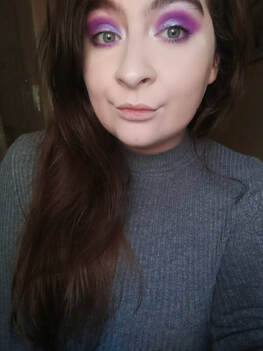
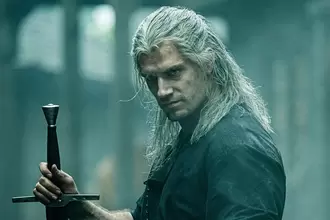
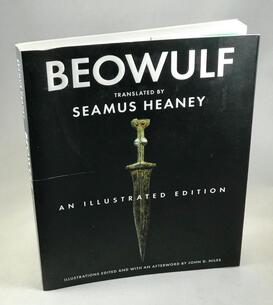
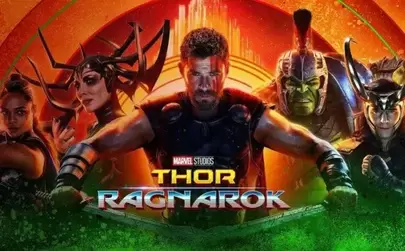
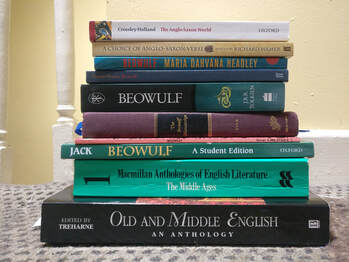
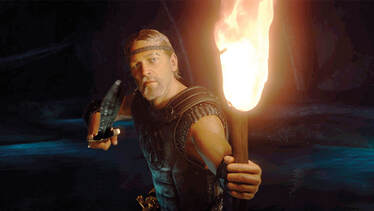
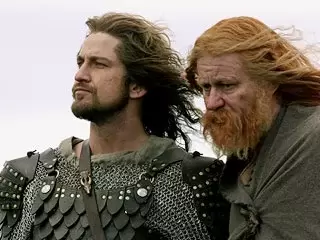
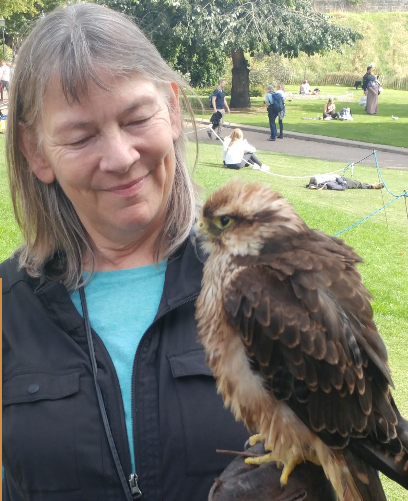
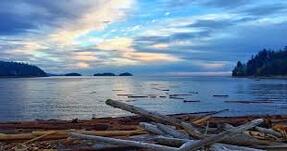
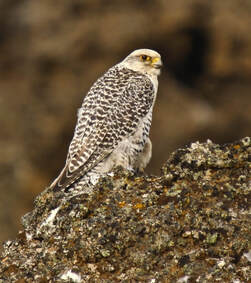
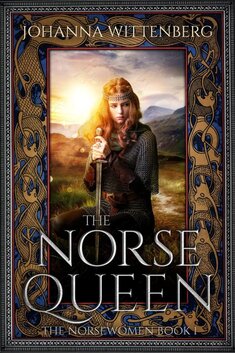
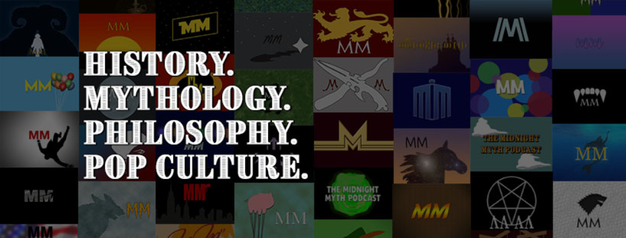
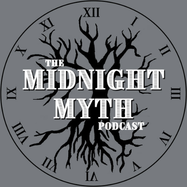
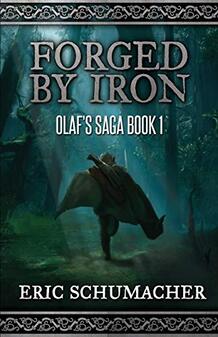

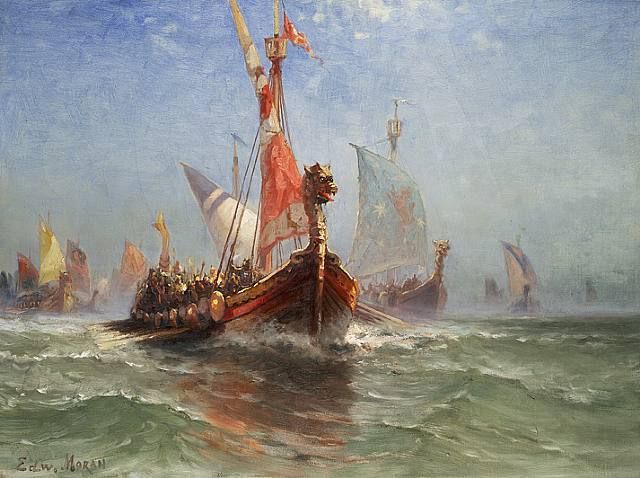
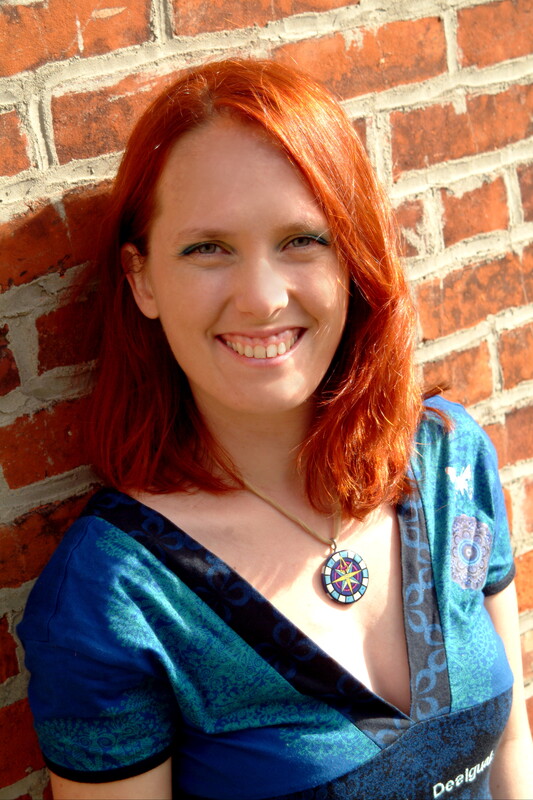
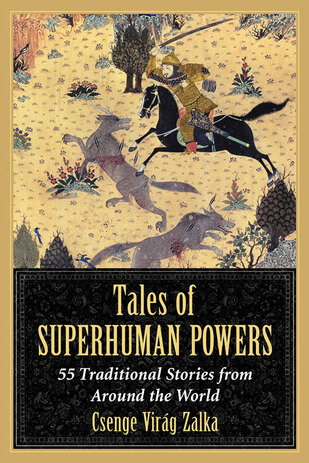
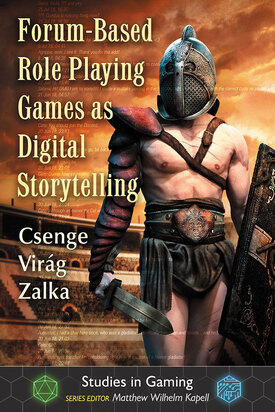
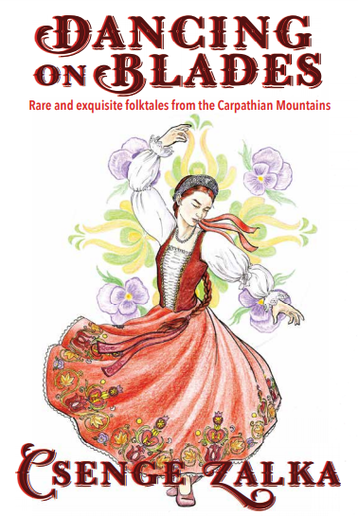
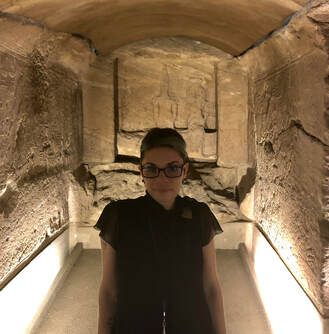
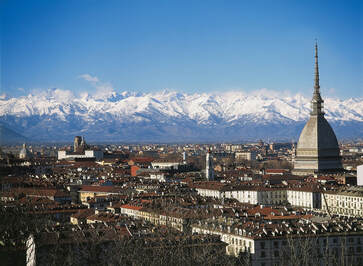
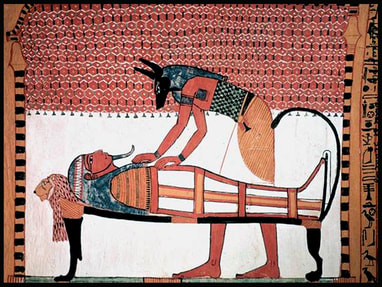
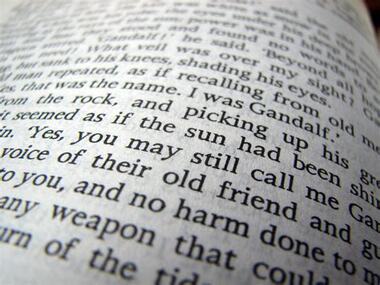
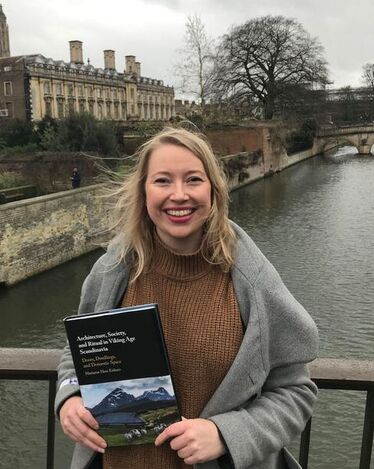
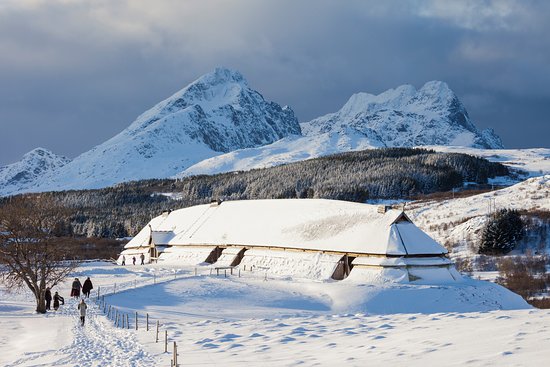
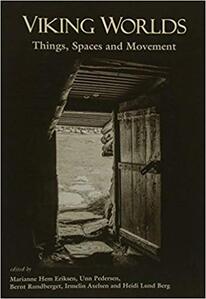
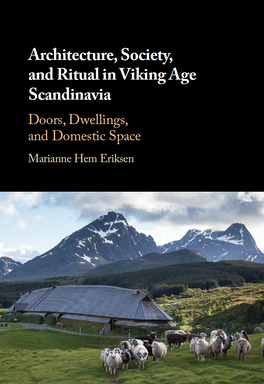
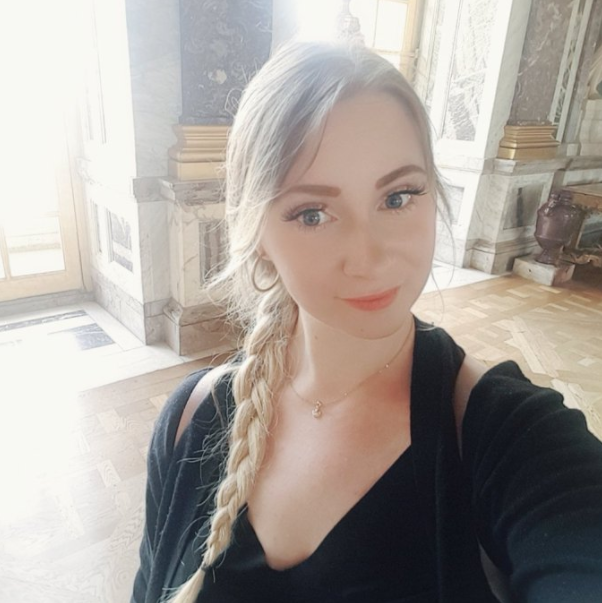
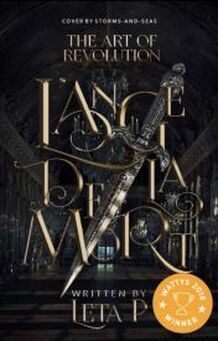
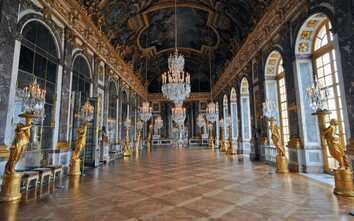
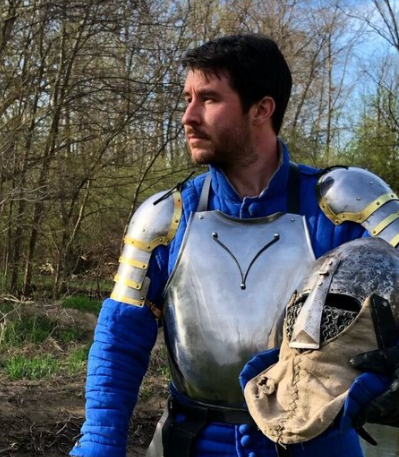
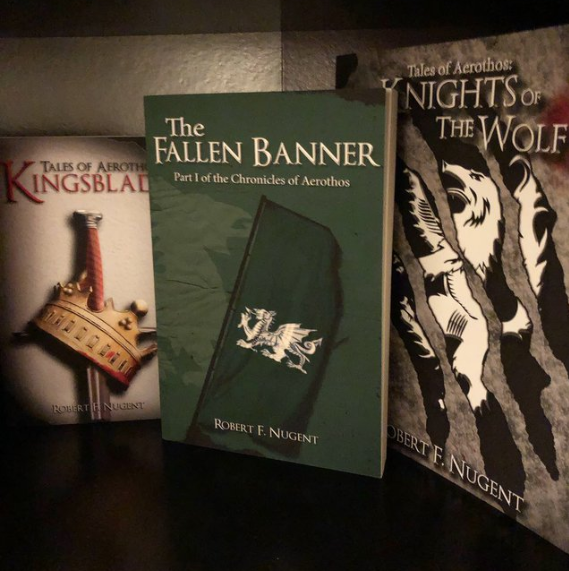
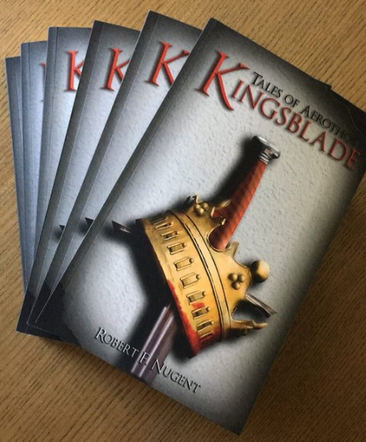
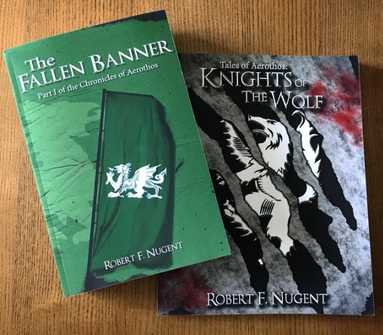
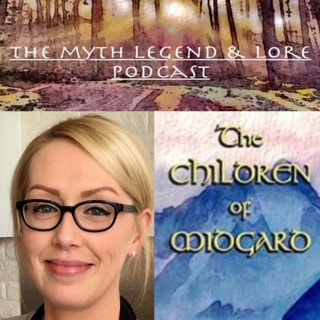

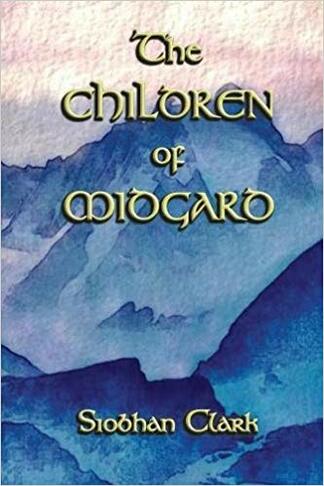
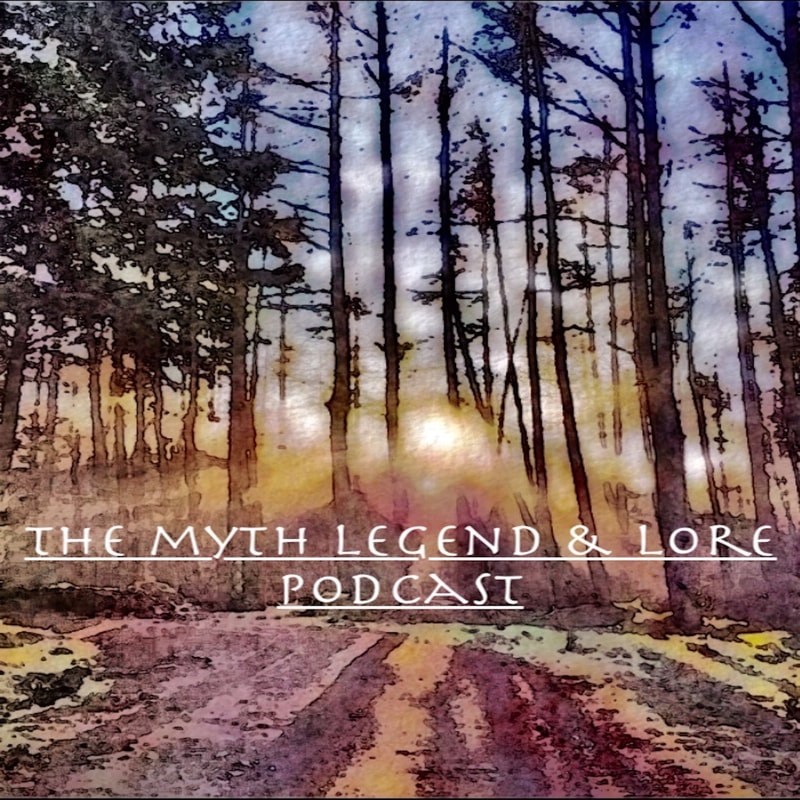
 RSS Feed
RSS Feed
